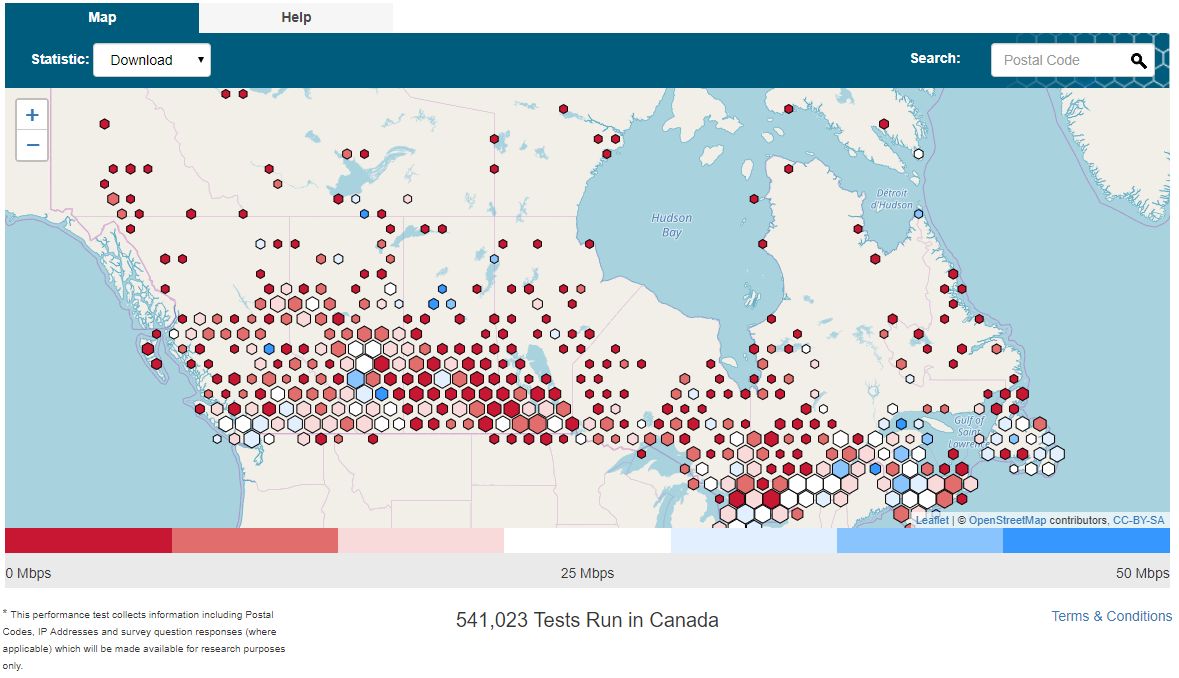What’s the longest period of time you’ve left your smartphone untouched? In the last year, have you disconnected for eight consecutive hours?

If not, you’re among the 80 per cent of Canadians who haven’t been able to unplug in the last 12 months.
The Canadian Internet Registration Authority (CIRA) published Tuesday its annual report on the state of the nation’s internet use and access.
The survey of more than 2,000 people found that 85 per cent of Canadians had not spent more than one week offline in the last year. Only one in five people surveyed had even disconnected for eight hours straight.
Other highlights from the report include:
- More boomers are embracing smartphones. The percentage of those 55 years old and older who browse the web using mobile devices rose from 47 per cent in 2015 to 57 per cent in 2019);
- Three-quarters of Canadians surf the web while watching TV;
- 9 per cent of Canadians completed their education online;
- 16 per cent found a home online;
- 22 per cent found a job online;
- 10 per cent found their spouse online;
- 64 per cent shop online with Canadian retailers
- 70 per cent say they would be unlikely to buy a house in an area that didn’t have high-speed internet
- 46 per cent of Canadians admit to using their phone in the bathroom;
“That’s probably 46 per cent of Canadians would admit to using their mobile devices in the bathroom. I think it’s probably higher,” said Spencer Callaghan, CIRA’s communications manager.
“It just goes to show we’re still trying to figure out a healthy relationship with the internet.
“The good news is I think Canadians are slowly starting to realize that the internet obviously is a massive net benefit to society, but Canadians are starting to realize there are ways that we need to moderate how we use it and have a better understanding of how it impacts our lives,” Callaghan said.
WATCH: (June 4, 2018) Music producer Simon Cowell has kicked his smartphone addiction. What would it take for you to give up your phone?

In 2019, New Brunswick lost its crown for having the fastest average internet speed in the country. Both B.C. (52.28 Mbps) and Alberta (52.14 Mbps) surpassed New Brunswick (50.41 Mbps).
“Of course, New Brunswick is a very small province geographically so it’s not necessarily as complicated to wire end to end as maybe B.C. or Ontario would be, but the government made a specific effort to try and encourage that and actually was able to attract a lot of really good, high-tech jobs to the New Brunswick area.”
The survey also found average download speeds in urban households are quickly outpacing rural homes. Between 2018 and 2019, average household download speeds in urban areas more than doubled while rural download speeds grew just over one-and-a-half times.
“The internet is really the great equalizer,” Callaghan said.
“You can have a really fast internet connection pretty much anywhere in the country and you can have access to really great jobs and all the information we’ve ever created in the world. So it’s a really great driver of economic opportunity.
“One of the things we’ve really focused on here at CIRA is to help bridge that digital divide and help connect rural and Indigenous communities.”
CIRA also offers an Internet Performance Test that tests and plots (on a map) internet speed and connection. The map provides a visual indication of where — across the country, provinces and within cities and towns — there is strong, fast internet and where service and access is lacking.
“If you were to zoom in on a city like Edmonton — urban environment — you would still see gaps,” Callaghan explained. “That’s why it’s important to understand that these gaps aren’t necessarily just urban-rural divides but often they flow along socioeconomic lines within cities and it’s important we try to close those as well to provide opportunity for everybody.”





Comments